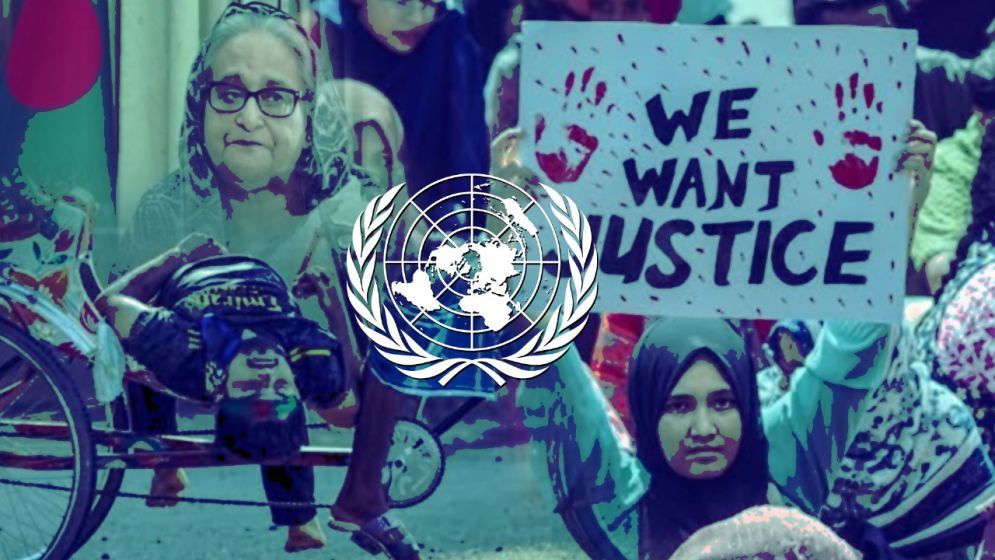UN High Commissioner for Human Rights Volker Turk slams severe human rights violations under Hasina regime

In a powerful address at the United Nations Human Rights Council in Geneva on Wednesday, UN High Commissioner for Human Rights Volker Turk condemned the actions of the Sheikh Hasina government, citing severe human rights violations against student protesters and their supporters during the July uprising.
Turk described the violent crackdown that occurred during the July–August student uprising as a “coordinated effort by the government to stifle dissent and maintain the rule of the Awami League.”
Presenting a fact-finding report on the protests, Turk pointed to the significant involvement of government officials, members of the ruling party, and law enforcement and intelligence agencies in carrying out these abuses.
The report painted a troubling picture of the Awami League regime's efforts to consolidate power at the expense of basic human rights and freedoms.
“The atrocities committed during this period represent a deliberate and severe breach of fundamental rights,” Turk remarked. “In their quest to preserve power, the government resorted to violence, targeting not only the protesters but also anyone sympathetic to their cause.”
The protests, initially sparked by student-led demands for democratic reforms, quickly evolved into a nationwide call for justice. In response, the government deployed excessive force, leading to widespread reports of torture, arbitrary detention, and physical violence.
Turk underscored the need for accountability in rebuilding the country's fractured social and political landscape.
“This is a unique opportunity for Bangladesh to confront its past and lay the foundation for a future based on justice and human rights,” he said, urging the people of Bangladesh to come together for truth-telling and reconciliation.
The High Commissioner emphasized the broader significance of the moment, framing it not just as a political issue, but as one that affects the nation’s identity.
“Regardless of the differences that divide the nation, it is one country, one citizenship. This is the time to unite for the betterment of all citizens, for the protection of fundamental freedoms, and to ensure that such abuses are never repeated.”
At the Geneva event, Law Adviser Dr. Asif Nazrul, addressing the ongoing challenges in Bangladesh, spoke about the political violence that has erupted in response to the Awami League’s oppressive actions.
He acknowledged that some individuals involved in the regime’s oppressive tactics had been targeted in recent months.
“We strongly condemn these acts of retaliatory violence,” Nazrul stated, distancing the interim government from such incidents, which he described as politically motivated.
He also highlighted that the majority of those involved in the violence were from the Muslim community, with fewer attacks targeting minority groups.
Commissioner Turk meanwhile commended the interim government’s cooperation in facilitating investigations into the human rights abuses.
“We applaud the government’s swift response to our request to deploy a team of investigators,” Turk remarked. “Moving forward, it is crucial that due process is upheld, particularly when investigating retaliatory violence, including attacks on minority communities.”
In his closing remarks, Turk referred to the violence of 2024 as a tragic moment in Bangladesh's history, but one that could also serve as a turning point for the nation.
“This year, Bangladesh has a unique opportunity to close the chapter on its troubled past and embrace a future grounded in accountability, justice, and respect for human rights,” he said.
—

